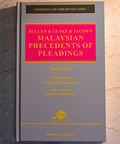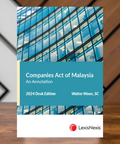![Akta Perlindungan Data Peribadi 2010 (Akta 709), Peraturan-Peraturan Dan Perintah [PDPA] [Hingga 10hb September 2025]](http://www.joshualegalartgallery.com/cdn/shop/files/2_fc26e649-ccca-48b2-86e1-5d60af624a6e.png?v=1759822289&width=480)
![Akta Perlindungan Data Peribadi 2010 (Akta 709), Peraturan-Peraturan Dan Perintah [PDPA] [Hingga 10hb September 2025]](http://www.joshualegalartgallery.com/cdn/shop/files/3_098d3415-b7d7-4f2b-a1c7-409fe1a95690.png?v=1759822289&width=480)
![Akta Perlindungan Data Peribadi 2010 (Akta 709), Peraturan-Peraturan Dan Perintah [PDPA] [Hingga 10hb September 2025]](http://www.joshualegalartgallery.com/cdn/shop/files/4_7c506696-7cfc-4efa-8525-b562cf180452.png?v=1759822289&width=480)
![Akta Perlindungan Data Peribadi 2010 (Akta 709), Peraturan-Peraturan Dan Perintah [PDPA] [Hingga 10hb September 2025]](http://www.joshualegalartgallery.com/cdn/shop/files/cup_2b165e3b-087d-445c-b7ff-b1a248f60d8f.jpg?v=1759822289&width=480)
![Akta Perlindungan Data Peribadi 2010 (Akta 709), Peraturan-Peraturan Dan Perintah [PDPA] [Hingga 1hb April 2019]](http://www.joshualegalartgallery.com/cdn/shop/products/JLAG_488d8256-1fa1-4098-a3bf-5cdf27762057.jpg?v=1759822289&width=480)
Akta Perlindungan Data Peribadi 2010 (Akta 709), Peraturan-Peraturan Dan Perintah [PDPA] [Hingga 10hb September 2025]
AKTA PERLINDUNGAN DATA PERIBADI 2010 (AKTA 709)
PERSONAL DATA PROTECTION ACT 2010 (ACT 709)
*Nota: Buku ini mengandungi kedua-dua versi Bahasa Melayu dan Bahasa Inggeris
Detailed Contents Of Akta Perlindungan Data Peribadi 2010 (Akta 709) :
The Akta Perlindungan Data Peribadi 2010, also known as the Personal Data Protection Act 2010 (PDPA), is a Malaysian law that regulates the processing of personal data in commercial transactions. It was enacted on June 10, 2010, and came into effect on November 15, 2013.
The PDPA applies to all organizations that process personal data in the course of their commercial activities, regardless of whether the organizations are based in Malaysia or overseas. Personal data refers to any information that relates directly or indirectly to an individual, whether in the form of written or electronic records.
The PDPA sets out several key principles that organizations must comply with when processing personal data:
Consent: Organizations must obtain consent from individuals before collecting, using, or disclosing their personal data.
Notice and Choice: Organizations must provide individuals with clear and concise notices about the purposes for which their personal data will be used, and give them the option to opt out of certain uses.
Access and Correction: Individuals have the right to access and correct their personal data held by organizations.
Security: Organizations must take reasonable steps to protect personal data from unauthorized access, disclosure, and misuse.
Retention: Organizations must not retain personal data longer than necessary for the purposes for which it was collected.
Transfer: Organizations must ensure that personal data transferred outside of Malaysia is protected by similar laws and standards.
Accountability: Organizations are responsible for ensuring compliance with the PDPA, and must appoint a data protection officer to oversee their data protection practices.
The PDPA also sets out several offenses and penalties for non-compliance, including fines and imprisonment.
Overall, the PDPA aims to balance the interests of individuals in protecting their personal data with the needs of organizations to collect, use, and disclose personal data in their commercial activities. By providing clear guidelines and principles for data protection, the PDPA helps to promote transparency, accountability, and trust in the handling of personal data in Malaysia.
Akta Perlindungan Data Peribadi 2010 (Akta 709) Contains:
Akta Perlindungan Data Peribadi 2010 (Akta 709)
Personal Data Protection Act 2010 (Act 709)
Peraturan-Peraturan Perlindungan Data Peribadi 2013
Personal Data Protection Regulations 2013
Perintah Perlindungan Data Peribadi (Golongan Pengguna Data) 2013
Personal Data Protection (Class of Data Users) Order 2013
Peraturan-Peraturan Perlindungan Data Peribadi (Pendaftaran Pengguna Data) 2013
Personal Data Protection (Registration of Data User) Regulations 2013
Peraturan-Peraturan Perlindungan Data Peribadi (Fi) 2013
Personal Data Protection (Fees) Regulations 2013
Peraturan-Peraturan Perlindungan Data Peribadi (Pengkompaunan Kesalahan) 2016
Personal Data Protection (Compounding of Offences) Regulations 2016
Peraturan-Peraturan Perlindungan Data Peribadi (Tribunal Rayuan) 2021
Personal Data Protection (Appeal Tribunal) Regulations 2021
Find similar books to Akta Perlindungan Data Peribadi 2010 : Akta/ Statutes


































